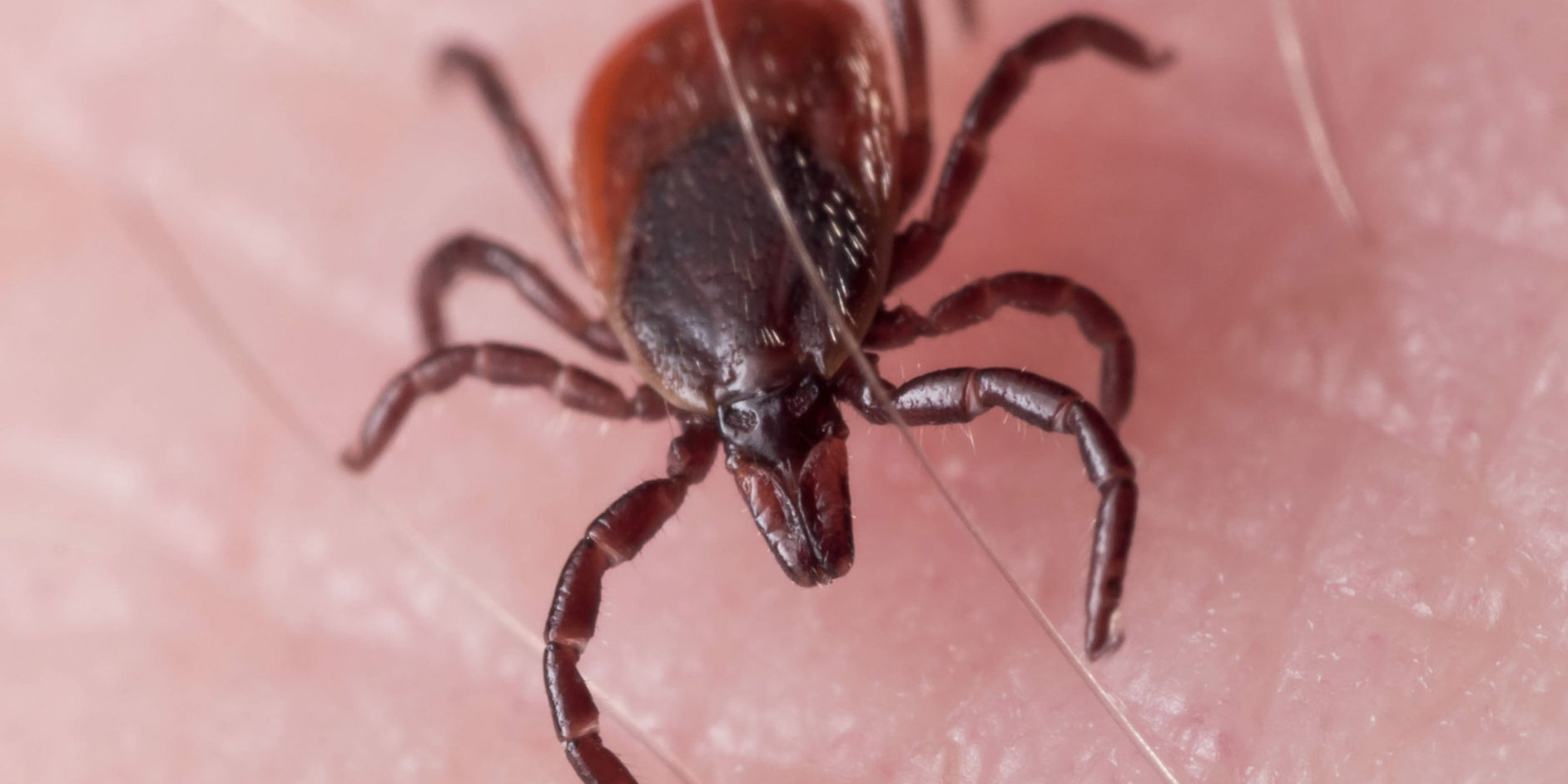If a deer tick bites you and stays attached for 36-48 hours, you can get a bacterial infection called Lyme disease. If you remove the tick within 2 days, you probably won’t get infected. Lyme disease can lead to serious, on-going inflammation of your skin, joints, nervous system and eventually your organs. You will want to see a doctor as soon as you think you’ve been infected. The earlier you’re treated, the less likely the infection will spread.
Symptoms & Treatment of Lyme Disease
Symptoms can start anywhere from 3 to 30 days after the bite. One of the first signs you’ll see is a 2-inch red, bulls-eye rash, which slowly gets bigger and may feel warm to the touch. Other flu-like symptoms include:
- Fever
- Chills
- Sore throat
- Headache
- Sensitivity to light
- Fatigue
- Muscle and joint pain
- Swollen lymph nodes
Without a doctor’s treatment, symptoms can get worse and include:
- Neck stiffness
- Arthritis joint pain and swelling, especially in the knees
- “Drooping” of your face
- An irregular heartbeat
- Inflammation in your brain or spinal cord
- Shooting pain, numbness, or tingling in your hands or feet
A doctor will treat your Lyme disease by prescribing oral antibiotics for 10 days to 3 weeks. If you’re not improving, you’ll need to revisit the doctor for antibiotics delivered by a shot.
About 10% of people infected continue to have joint or muscle pain, fatigue, and short-term memory loss or confusion. This is called post-treatment Lyme disease and can be hard to diagnose, since it has many of the same symptoms as other diseases and there are no blood tests to confirm it. Some experts think your body can keep fighting the Lyme infection even after the bacteria are gone, similar to an autoimmune disorder. There’s no vaccine for Lyme disease yet, but research is ongoing and should be completed by 2026.
How to Prevent Lyme Disease
You’re most likely to get Lyme disease if you live in the Northeast or upper Midwest. But the deer tick has now moved into all 50 states, causing about 476,000 cases a year. If you enjoy camping, hunting, hiking, or like to work in your backyard, you’re more likely to catch Lyme disease. Ticks live in shrubs and bushes and grab onto you as you pass by. So here are the best ways to avoid them:
- Wear pants & socks in areas with lots of trees
- Wear a tick repellant on your skin and clothing that has DEET, lemon oil or eucalyptus
- Use the chemical permethrin on clothing and camping gear
- Look for ticks on your skin and scalp and remove any with tweezers
- Shower within 2 hours after coming inside
- Put your clothing and gear into a hot dryer to kill any hiding ticks
For more information on Lyme disease or what to do if you think you’ve been bitten, contact Lawrence Price, MD at (phone) or visit (website).



